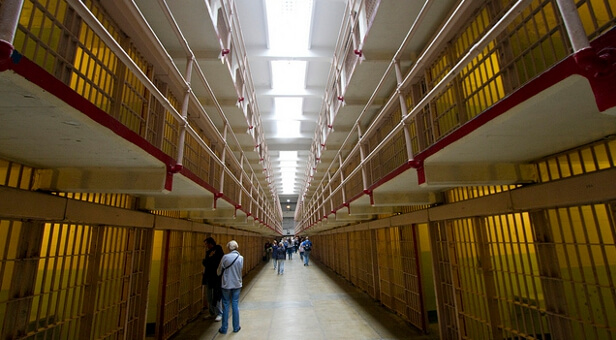Letters from My Father’s Murderer is an extraordinary true story of grace, mercy, and the redemptive power of God. When her father was murdered, Laurie Coombs and her family sought justice—and found it. Yet, despite the swift punishment of the killer, Laurie found herself increasingly full of pain, bitterness, and anger she couldn’t control. It was the call to love and forgive her father’s murderer that set her, the murderer, and several other inmates on the journey that would truly change their lives forever.
This compelling story of transformation will touch the deepest wounds and show how God can redeem what seems unredeemable.
Q: Why did you want to write Letters from My Father‘s Murderer, which details such a tragic and painful part of your life?
To be honest, I didn’t initially want to write this book. I wanted to share my story, but I knew writing it in a book would require me to bare all. I knew I’d have to share difficult things, and I didn’t want to. But greater than my resistance was my desire to see people experience freedom and redemption and healing as I had. I wanted God to be glorified for what He had done in and through my life.
I knew God was calling me to write this book. And I knew God well enough to know that if I answered that call I’d most assuredly see lives change as a result of the message He has given me. God allowed me to see something good could come out of the ashes of my past. I could play a small part in the grand story He has been unfolding since the beginning of time. I could participate in what He’s doing in the here and now for the good of many. And so, I chose to say yes, and of course I’m now completely on board.
Q: Tell us about the significance of the few interactions you had with your father just prior to his murder.
About one month before my dad died, he said to me, “Laurie, when I die, I want people to remember me for who I am. I don’t want anyone turning me into something I’m not.” The comment sort of stunned me at first. It came out of absolutely nowhere. My dad continued to tell me people only want to talk about the good parts of a person after they die. “But that’s not who they really are,” he said. “There are good parts and bad parts to every one of us.”
For many years, I didn’t understand why my dad said that to me—obviously, neither one of us knew he was going to die—but as I began to write this book, his words came to mind. I knew then, without a doubt, God had him speak those words to me more than a decade before I needed them to give me the freedom to share my story however God would lead.
Q: You‘re very honest in the book about the mistakes your father made and how that affected your teen years and even your choice to reject the faith you had been raised in. Was that difficult for you to do?
Absolutely. I had to do a lot of thinking and praying about how to write what God wanted me to write in this book. But ultimately I knew God was calling me to truth. My dad was an amazing man. A wonderful father. I really was a daddy’s girl. But he wasn’t perfect. And neither am I. It’s my hope that I conveyed my imperfections throughout the book as well.
Q: Before sentencing at trial, what did you tell the jury on the day you stood in the courtroom and came face-to-face with your father‘s killer?
I told them about my dad. I tried to make my dad real to them. And then I left them with a challenge. I said,
“Until the day of Anthony’s death, we will have to deal with the fact that there is a man out there who took our dad’s life. How long this murderer will spend in prison is left up to you, and we encourage you to help our family in our pursuit of justice.
“This tragedy, which has affected all of our lives, is not over. This will be something we must live with for the rest of our lives; nonetheless, only when justice is served will we be able to move on with our lives and have closure.












